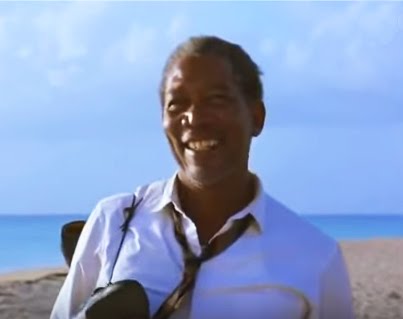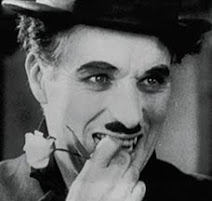
Mandelbrot: Mathematician, Teacher,
Mensch(Photo from a
University Of Umeå, Sweden, website
[Whose owner enjoys photographing the famous while
holding a large, stuffed Peeps], 2006. Go figure.)
Benoît Mandelbrot, the mathematician who coined the term “fractal” for mathematical shapes whose uneven contours could mimic irregularities found in nature, died today in Cambridge, Massachusetts at age 85.
Benoît B. Mandelbrot (oddly, the middle initial was something he adopted; he had no middle name, and the 'B' doesn't stand for anything known publicly) was born on November 20, 1924, to a Lithuanian Jewish family in Warsaw. In 1936, his family emigrated to France, living first in Paris and then fleeing to the south after the German invasion in 1940. Unoccupied Vichy was a bit slower (but not by much) to follow the anti-Jewish ordinances of the occupied north; as a teenager, Mandelbrot tended horses and fixed tools.
The Germans moved to occupy the south of France after the American invasion of North Africa in the winter of 1942. It's not known how he and his family survived in the south until the Allied invasions in the summer of 1944; luckily, they did.

Fractals Exist In Nature, And Our Mimicking It:
Book Of KellsIn an obituary by Jascha Hoffmann of the
New York Times,
" 'Applied mathematics had been concentrating for a century on phenomena which were smooth, but many things were not like that: the more you blew them up with a microscope the more complexity you found,' said David Mumford, a professor of mathematics at Brown University. '[Mandelbrot]
was one of the primary people who realized these were legitimate objects of study.'
Fractals: Not Just For Acid Trips Any More
"In a seminal book, The Fractal Geometry of Nature, published in 1982, Dr. Mandelbrot defended mathematical objects that he said others had dismissed as 'monstrous' and 'pathological.' Using fractal geometry, he argued, the complex outlines of clouds and coastlines, once considered unmeasurable, could now 'be approached in rigorous and vigorous quantitative fashion.' "Use of fractals is now common in too many branches of study to count, and its practical effect on engineering and manufacturing processes, on understanding the world we live in, has been immense.
Mandelbrot was known as a polymath, a lecturer and teacher for whom every conversation or class was an opportunity to "talk about something different", with an infectious sense of humor; broadly human, passionate about his work (which expanded the frontiers of human knowledge), and willing to allow himself to be photographed while holding a ridiculous stuffed duck.
Another
Mensch leaves us. I'm only a Dog, but I have a good enough nose to understand that the supply of Mensches in this world is limited.









